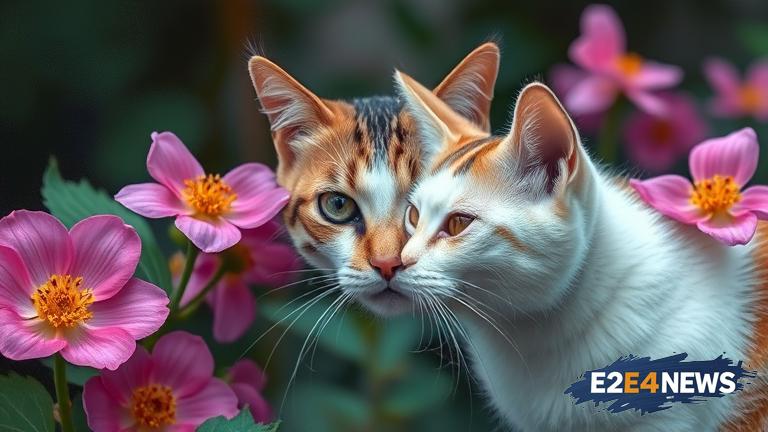Cat owners are being warned to keep a close eye on their plants, as some species can be toxic to their feline friends. The warning comes after several reports of cats falling ill or even dying after ingesting certain plants. One of the most toxic plants to cats is the lily, which can cause severe kidney damage if ingested. Even small amounts of lily pollen or leaves can be deadly to cats, making it essential for owners to keep them out of reach. Other plants that are toxic to cats include sago palms, tulips, and daffodils. These plants contain toxic compounds that can cause a range of symptoms, from vomiting and diarrhea to seizures and respiratory failure. Cat owners are advised to check their homes and gardens for any toxic plants and remove them immediately. If a cat is suspected to have ingested a toxic plant, owners should seek veterinary attention immediately. Prompt treatment can help prevent serious illness or death. In addition to removing toxic plants, cat owners can also take steps to prevent their pets from accessing them. This includes keeping plants out of reach, using plant covers or barriers, and supervising cats when they are in the garden. It’s also essential for cat owners to be aware of the signs of plant toxicity, which can include vomiting, diarrhea, lethargy, and loss of appetite. If a cat is showing any of these symptoms, owners should seek veterinary attention right away. The warning to cat owners comes as part of a larger effort to raise awareness about the dangers of toxic plants. Many plants that are commonly found in homes and gardens can be toxic to cats, and it’s up to owners to take steps to protect their pets. By being aware of the risks and taking precautions, cat owners can help keep their feline friends safe and healthy. The importance of being aware of toxic plants cannot be overstated, as even small amounts of certain plants can be deadly to cats. Cat owners who are unsure about which plants are toxic or how to protect their pets can consult with their veterinarian or a gardening expert. With the right knowledge and precautions, cat owners can enjoy their plants while keeping their feline friends safe. The warning to cat owners is not just limited to those who have plants in their homes, but also to those who have gardens or outdoor spaces where toxic plants may be present. By taking the necessary precautions, cat owners can help prevent serious illness or death in their pets. It’s also worth noting that some plants can be toxic to cats even if they are not ingested, as the pollen or sap can cause skin irritation or allergic reactions. Cat owners should be aware of these risks and take steps to protect their pets. Overall, the warning to cat owners is an important reminder of the need to be aware of the dangers of toxic plants and to take steps to protect their feline friends. By being informed and taking precautions, cat owners can help keep their pets safe and healthy.
